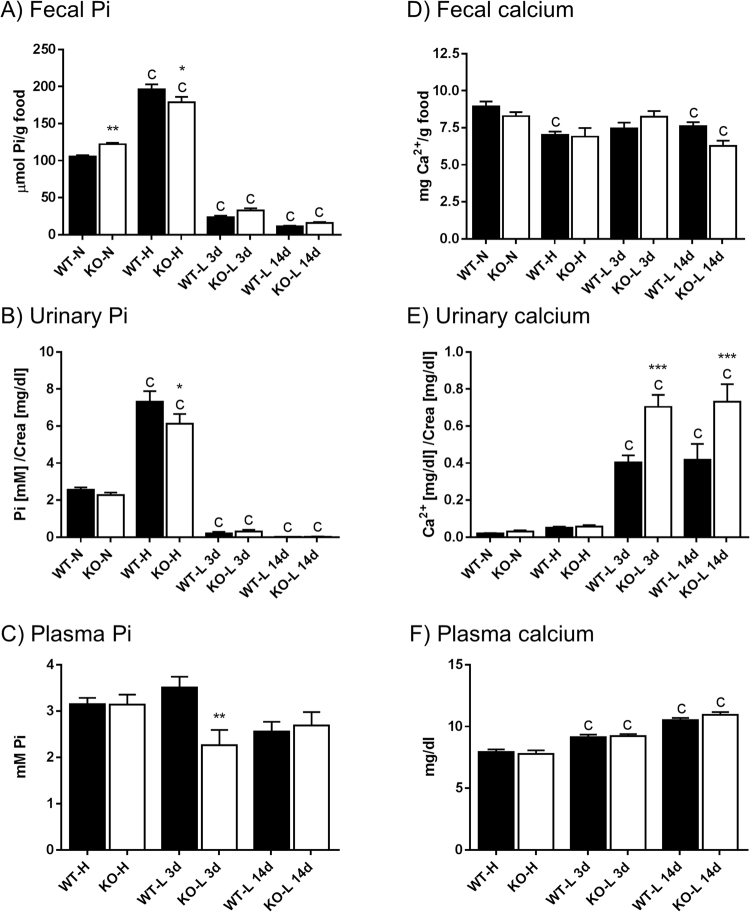Figure 1.
Intestinal ablation of NaPi-IIb and Pi deprivation causes transient hypophosphatemia and stimulates urinary calcium excretion. Fecal (A), urinary (B) and plasma (C) concentrations of Pi as well as fecal (D), urinary (E) and plasma (F) levels of Ca2+ were measured in samples collected from wild type (WT) and NaPi-IIb−/− mice (KO). Mice were fed diets containing normal (N), high (H) or low (L) amounts of Pi. The high Pi diet was provided for 3 days (3d) whereas the low Pi diet was provided for 3 (3d) and 14 days (14d), respectively. Data is presented as mean + SEM (n = 10) and was analyzed by ANOVA-Bonferroni. Significant differences are indicated as: a/*p < 0.05, b/**p < 0.01 and c/***p < 0.001, where letters indicate significant changes versus normal diets (or versus the high Pi diet, if normal diet is not available), and asterisks mark differences between genotypes under the same dietary condition.

